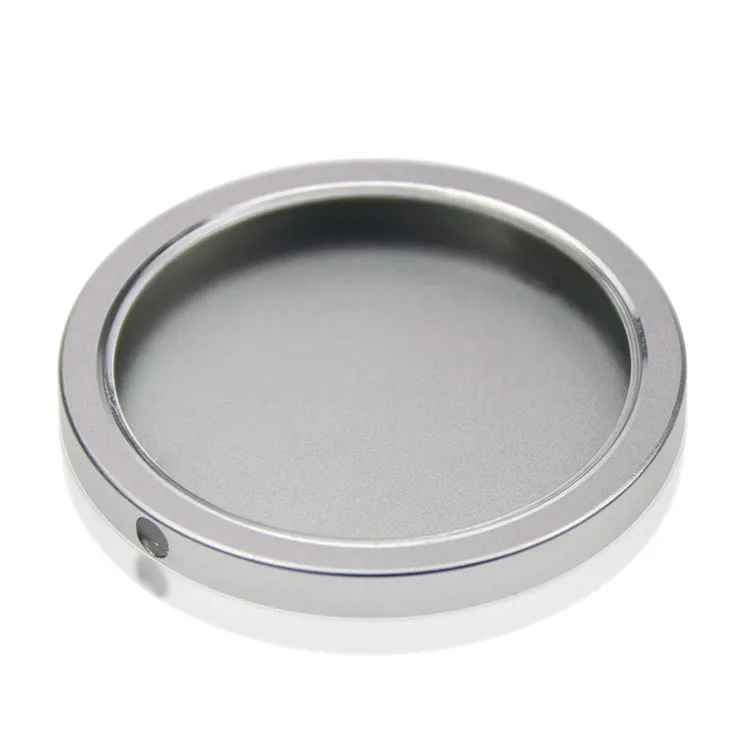A Comprehensive Guide to Aluminum Alloy Die Casting
2024-10-24
Aluminum alloy die casting is one of the most widely used manufacturing processes across various industries, offering a combination of strength, durability, and cost-efficiency. From automotive components to electronics housings, aluminum die cast parts are found in everyday products around the world. In this blog, we will explore the aluminum alloy die casting process, its benefits, common applications, and why it's a go-to choice for manufacturers.
What is Aluminum Alloy Die Casting?
Aluminum alloy die casting is a metal casting process that involves forcing molten aluminum into a mold cavity under high pressure. These molds, also known as dies, are made from tool steel and can be designed to produce complex shapes with a high degree of precision and repeatability. The use of aluminum alloys in this process adds the advantage of a lightweight material with excellent mechanical properties.
Key Benefits of Aluminum Alloy Die Casting
1. Lightweight and Strong
Aluminum alloys are much lighter than other metals like steel, making them ideal for applications where weight is a critical factor, such as in the automotive and aerospace industries. Despite their lightweight nature, aluminum alloys maintain excellent strength and durability.
2. High Thermal and Electrical Conductivity
Aluminum has good thermal and electrical conductivity, which is why it’s commonly used in electronics and electrical applications. Die-cast aluminum components are excellent for parts that require efficient heat dissipation or electrical conductivity.
3. Corrosion Resistance
Aluminum naturally forms a protective oxide layer, which makes it resistant to corrosion. This corrosion resistance is enhanced when aluminum is alloyed with other elements such as magnesium and silicon, making it ideal for outdoor and harsh environment applications.
4. Complex Geometries
The die casting process allows for the production of highly intricate and complex shapes that would be difficult or impossible to achieve with other manufacturing methods. This capability is particularly useful for producing parts that need to integrate multiple functions, reducing the need for additional machining or assembly.
5. High Production Efficiency
Aluminum die casting is well-suited for mass production. Once the die is created, the process can produce thousands or even millions of parts quickly and efficiently with consistent quality. This makes aluminum alloy die casting a cost-effective solution for large-scale production runs.
6. Surface Finish and Aesthetic Quality
Aluminum die-cast parts generally have excellent surface finishes, allowing for easy application of coatings, paints, or anodization. This makes them not only functional but also visually appealing, ideal for consumer-facing products like electronics and appliances.
Common Applications of Aluminum Alloy Die Casting

1. Automotive Industry
One of the largest consumers of aluminum die-cast components is the automotive sector. Lightweight aluminum parts help improve fuel efficiency while maintaining the strength required for vehicle performance and safety. Parts like engine blocks, transmission housings, and heat sinks are commonly produced through die casting.
2. Electronics
The electronics industry relies heavily on aluminum die casting for components that require high thermal conductivity and precise shapes. Items like heat sinks, enclosures for electronic devices, and parts for consumer electronics are often made using this process.
3. Aerospace
Aerospace components need to be both lightweight and durable, making aluminum die casting a perfect fit. Complex components like aircraft fittings, housings, and structural parts benefit from the strength-to-weight ratio and precision offered by this process.
4. Appliances
Aluminum die-cast components are used in a wide range of household appliances, including kitchen equipment, washing machines, and air conditioning units. The durability and corrosion resistance of aluminum make it ideal for these everyday applications.
5. Medical Devices
In the medical field, precision and material reliability are crucial. Aluminum die casting is used to manufacture various medical equipment components, such as imaging devices, surgical tools, and housings for diagnostic machines.
6. Lighting
The excellent thermal conductivity and corrosion resistance of aluminum alloys make them ideal for use in lighting fixtures. Outdoor lights, LED housing, and automotive headlights are often made from aluminum die castings.
The Aluminum Alloy Die Casting Process
1. Die Preparation
The die is lubricated and preheated to ensure smooth filling and to extend the die’s lifespan.
2. Injection
Molten aluminum is injected into the die cavity at high pressure. This pressure ensures the metal fills all the intricate areas of the die and that the final product is dense and free of porosity.
3. Cooling
Once the aluminum has filled the die, it is allowed to cool and solidify. The cooling rate can impact the mechanical properties of the part, so it’s carefully controlled to meet specific material requirements.
4. Ejection
After the part has solidified, the die is opened, and the casting is ejected. The ejection process must be precise to prevent damage to the part.
5. Trimming and Finishing
Any excess material, known as flash, is removed from the part. The component may also undergo additional finishing processes, such as machining, surface treatments, or coating.
Key Aluminum Alloys Used in Die Casting
- Aluminum Alloy 380: One of the most common alloys used in die casting, it offers a good balance of strength, corrosion resistance, and ease of casting.
- Aluminum Alloy 6061: Known for its excellent mechanical properties and weldability, it’s used in more specialized applications where higher strength and ductility are required.
- Aluminum Alloy A383: Similar to Alloy 380 but with better corrosion resistance, A383 is often used in high-pressure applications.
Conclusion
Aluminum alloy die casting offers a combination of strength, lightweight, corrosion resistance, and efficiency that makes it ideal for various industrial and commercial applications. Whether in the automotive, electronics, or aerospace industry, die-cast aluminum components deliver reliability and performance. The process is also highly scalable and cost-effective, making it the preferred choice for manufacturers looking to produce complex, high-quality parts on a large scale.
With technological advancements and continued innovation, aluminum alloy die casting will remain a cornerstone of modern manufacturing, driving the development of more efficient, durable, and lightweight products across multiple industries.


